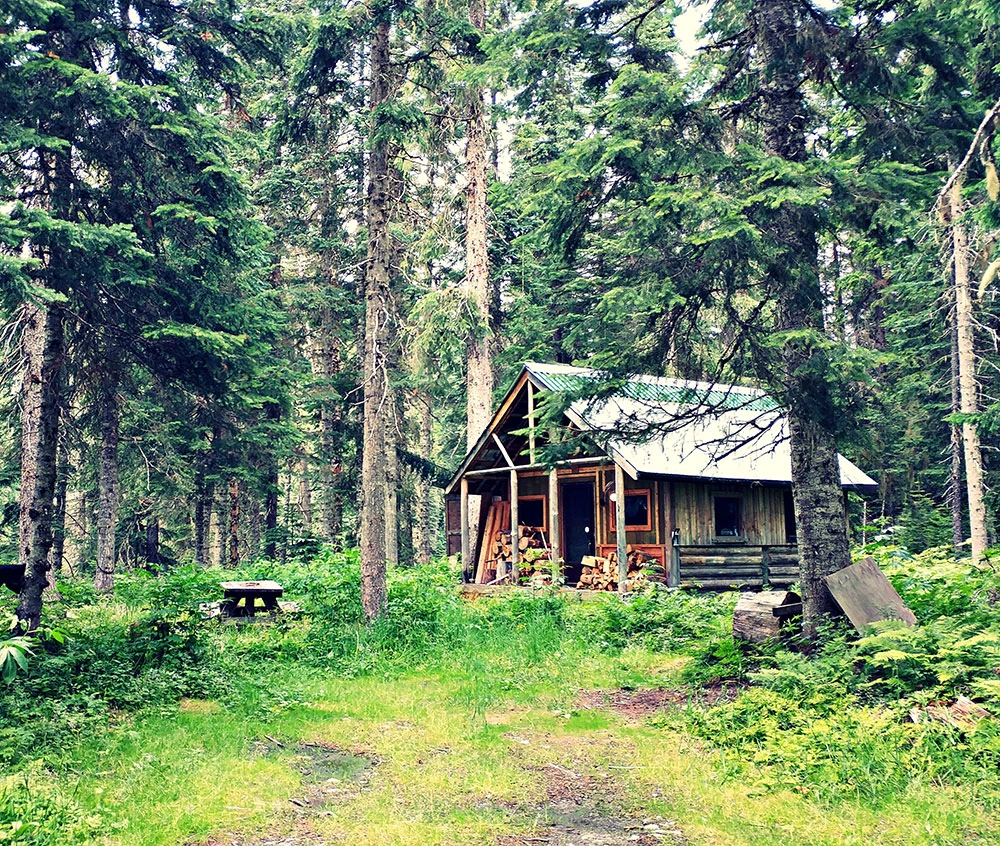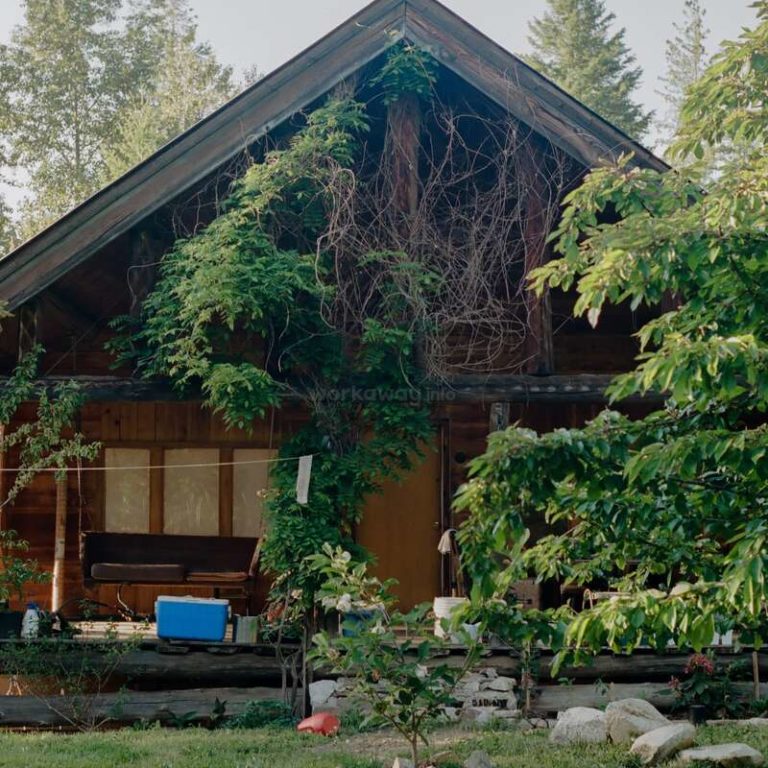Living off the grid not only requires a commitment to sustainable living but also fosters a lifestyle of simplicity.
In this pursuit, individuals can experience greater fulfillment through a meaningful connection with nature and themselves by embracing minimalism and self-sufficiency.
By intentionally limiting our consumption of resources and energy, we can lighten our ecological footprint while enjoying more profound richness in life’s essential experiences and relationships.
Off-grid living enables a deliberate reduction of unnecessary items, allowing us to focus on what truly matters – healthy relationships, meaningful work, and contentment with less.
Let’s explore the practice of simplicity and sustainability as an essential part of off-grid life, leading towards an increasingly satisfying existence that respectfully nourishes both our spirit and Mother Nature.
Embrace minimalism
Living lightly is all about embracing minimalism and letting go of unnecessary possessions, commitments, and distractions. Consider paring down your belongings and only keeping items that bring you joy or serve a purpose.
By letting go of unnecessary possessions, commitments, and distractions, you can create a more intentional and fulfilling life.
Start by taking inventory of your belongings and only keeping items that bring you joy or serve a purpose.
This might involve decluttering your living space, donating or selling items you no longer need, and being mindful of your purchasing habits.
As you let go of physical possessions, also consider paring down your commitments and distractions.
Say no to activities that no longer serve you, and create space in your schedule for the things that bring you joy and fulfillment.
This might involve setting boundaries with others, prioritizing self-care, and taking time for reflection and introspection.
By embracing minimalism and living lightly, you can create a life that is more intentional, more meaningful, and more aligned with your values.
You’ll have more time, energy, and space to pursue your passions and connect with the things that truly matter.
So, take the first step today and start living lightly – you might be surprised by the freedom and joy that awaits you.
Use renewable energy
Off-grid living often involves using renewable energy sources like solar or wind power. Invest in energy-efficient appliances and lighting, and make an effort to reduce your energy consumption.
Off-grid living is all about harnessing renewable energy sources to power your home and minimizing your reliance on traditional grid-supplied electricity.
Solar and wind power are two of the most popular options for off-grid energy production, offering a clean and sustainable alternative to fossil fuels.
To maximize your energy independence, it’s essential to invest in energy-efficient appliances and lighting.
Not only do these devices use less energy, but they also last longer and require less maintenance, saving you time and money in the long run.
To further reduce your energy consumption, consider implementing simple changes like turning off lights and electronics when not in use, using power strips to eliminate standby power usage, and adjusting your thermostat settings to optimize heating and cooling.
By taking these steps, you can significantly reduce your energy consumption, lower your utility bills, and take a significant step towards a more sustainable and self-sufficient lifestyle.
Grow your own food
Growing your own food is a great way to live lightly and sustainably. Not only does it reduce your carbon footprint, but it also allows you to eat fresh, healthy produce without relying on industrial agriculture.
Growing your own food is an exceptional way to live lightly and sustainably, offering a multitude of benefits for your health, the environment, and your wallet.
By cultivating your own fruits and vegetables, you can significantly reduce your carbon footprint and reliance on industrial agriculture.
Industrial agriculture is a significant contributor to greenhouse gas emissions, deforestation, and water pollution.
By growing your own food, you can enjoy fresh, healthy produce while minimizing your environmental impact.
Not only does this approach promote sustainable living, but it also allows you to have more control over the nutrient content and pesticide use in your food.
With the right tools and knowledge, you can grow a variety of delicious and nutritious crops in your own backyard, balcony, or community garden, no matter how small the space.
Gardening can be an excellent form of exercise, stress relief, and socialization, providing numerous physical and mental health benefits.
Embrace the joys of self-sufficiency and sustainability by starting a garden today!
Use local and seasonal ingredients
When cooking, try to use local and seasonal ingredients whenever possible. This reduces transportation emissions and supports the local food system.
When cooking, choosing local and seasonal ingredients can have a profound impact on the environment.
By selecting produce that is grown and harvested in your region, you are reducing the carbon footprint of your meal.
Transportation emissions are a significant contributor to greenhouse gas emissions, and by choosing local ingredients, you are helping to minimize these emissions.
Supporting local farmers and food producers helps to keep money within the local community, fostering a stronger and more resilient local food system.
Seasonal ingredients are also more flavorful and nutritious, as they are at their peak ripeness when harvested.
By incorporating local and seasonal ingredients into your cooking, you can enjoy a delicious and sustainable meal that supports the local economy and environment.
Reduce waste
Living lightly involves reducing waste and finding ways to reuse and repurpose items whenever possible. Try to avoid single-use plastics, compost food scraps, and use reusable containers and bags.
Living lightly is a lifestyle choice that prioritizes reducing waste and finding creative ways to reuse and repurpose items.
One of the simplest ways to live lightly is to avoid single-use plastics, which often end up in landfills and oceans, polluting our environment.
Instead, opt for reusable containers and bags, such as stainless steel water bottles and cotton or canvas tote bags.
These small changes can make a big difference in reducing plastic waste.
In the kitchen, composting food scraps is an excellent way to reduce waste and create nutrient-rich soil for your garden.
Start a compost pile or use a compost bin to collect your food scraps, such as vegetable peels and eggshells.
Not only will this reduce your waste, but it will also provide a natural fertilizer for your plants.
Another way to live lightly is to repurpose items whenever possible.
Instead of throwing away old items, consider giving them a new life.
For example, old t-shirts can be turned into cleaning rags, and old jars can be used as storage containers.
By finding ways to reuse and repurpose items, you can reduce waste and create a more sustainable lifestyle.
Use eco-friendly cleaning products
Many cleaning products contain harsh chemicals that can harm the environment. Switch to eco-friendly cleaning products that are gentle on the environment and your health.
When it comes to cleaning our homes, many of us reach for products that are convenient and effective, but these products often contain harsh chemicals that can have negative impacts on both our health and the environment.
Chemicals like phthalates, ammonia, and volatile organic compounds (VOCs) have been linked to a range of health problems, from respiratory issues to hormone disruption.
In addition, these chemicals can contaminate our waterways and soil, harming aquatic life and polluting our environment.
Fortunately, there is a growing range of eco-friendly cleaning products available that are gentle on the environment and your health.
These products are made with natural ingredients like essential oils, baking soda, and vinegar, which are effective at cleaning without exposing us to harsh chemicals.
By switching to eco-friendly cleaning products, we can not only protect our health and the environment, but also contribute to a more sustainable future for our planet.
So the next time you’re shopping for cleaning products, consider making the switch to a greener, healthier option.
Your health and the environment will thank you!
Conserve water
Off-grid living often involves collecting and conserving rainwater for household use. Install low-flow showerheads and toilets, and make sure to turn off the tap when brushing your teeth or washing dishes.
One of the important aspects of off-grid living is collecting and conserving rainwater for household use.
By harnessing and storing rainwater, you can reduce your reliance on municipal water supplies and lower your water bills.
To start, you can install rainwater collection systems such as gutters and downspouts to direct rainwater into storage tanks.
These systems can be customized to suit your specific needs and can be installed on your roof or in your yard.
In addition to collecting rainwater, it’s essential to conserve water in your daily household activities.
Low-flow showerheads and toilets are an excellent way to start.
These devices use significantly less water than traditional fixtures and can lead to significant water savings over time.
For instance, a low-flow showerhead can use up to 70% less water than a standard showerhead, while a dual-flush toilet can save up to 67% more water per flush.
Moreover, simple behaviors like turning off the tap when brushing your teeth or washing dishes can also make a significant difference in your water consumption.
These actions not only conserve water but also reduce your household’s overall water bill.
By combining rainwater collection, low-flow fixtures, and conscious water usage, you can significantly reduce your carbon footprint and maintain an eco-friendly lifestyle.
Off-grid living that incorporates rainwater collection and conservation measures can help you reduce your reliance on municipal water supplies, lower your water bills, and minimize your carbon footprint.
By incorporating low-flow showerheads and toilets and consciously using water, you can maintain an eco-friendly lifestyle that not only benefits the environment but also your wallet.] There are numerous advantages to living off-grid, and rainwater collection and conservation are important components of this lifestyle.
Collecting and conserving rainwater not only reduces your reliance on municipal water supplies but also saves you money on your water bill.
A low-flow showerhead can use up to 70% less water than a standard showerhead, while a dual-flush toilet can save up to 67% more water per flush.
By installing these fixtures, you can significantly reduce your water consumption.
However, it’s not just about installing the right fixtures, simple behaviors like turning off the tap when brushing your teeth or washing dishes can also make a significant difference in your water consumption.
These actions not only conserve water but also reduce your household’s overall water bill.
By combining rainwater collection, low-flow fixtures, and conscious water usage, you can significantly reduce your environmental impact while also saving money on your water bill.
* Choose low-flow showerheads and toilets, and make sure they are WaterSense labeled to ensure they meet EPA standards for water efficiency.
* Look for fixtures with sensors that can automatically turn off the water flow when not in use.
* Consider installing a greywater system to reuse water from sinks and showers for irrigation or flushing toilets.
* Use rainwater for irrigation and flushing toilets instead of potable water whenever possible.
Embrace the natural rhythms of life
Living off the grid often requires a more flexible schedule and a closer connection to nature’s rhythms. Embrace the natural light and dark cycles by using natural lighting and avoiding artificial lighting as much as possible.
Living off the grid requires a more flexible schedule and a closer connection to nature’s rhythms.
One of the key aspects of this lifestyle is embracing the natural light and dark cycles by using natural lighting and avoiding artificial lighting as much as possible.
This means taking advantage of the natural light during the day to illuminate your living spaces, and relying on alternative sources of light such as candles or lanterns during the night.
By doing so, you not only conserve energy and reduce your carbon footprint, but you also become more attuned to the natural rhythms of the environment around you.
This closer connection to nature can have a profound impact on your well-being and sense of self, allowing you to live a more harmonious and sustainable life off the grid.
Want More? Dive Deeper Here!
Hey there! If you’re the type who loves going down the rabbit hole of information (like we do), you’re in the right spot. We’ve pulled together some cool reads and resources that dive a bit deeper into the stuff we chat about on our site. Whether you’re just killing time or super into the topic, these picks might just be what you’re looking for. Happy reading!






